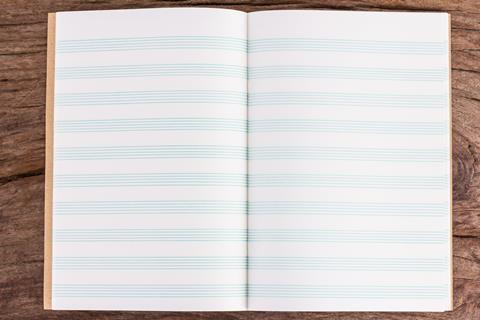Having discovered a love of improvisation during the pandemic, cellist Simone Seales believes that the practice can free classically trained musicians from a typically unhealthy fear of imperfection

Discover more Featured Stories like this in The Strad Playing Hub
Read more premium content for subscribers here
I never wanted to be an orchestral musician. The perfectionism required in auditions mixed with the subjectivity of judges meant that I could never be myself on the cello. I would always be playing ‘in the style’ of the panel’s preferred orchestral sound, so that perhaps they might accept and validate me in the form of a regular pay cheque.
As a cellist, I felt pressure to explain what I planned to ‘do’ with myself. Even though I never intended to have a career playing in an orchestra, I felt pressured to practise audition excerpts and learn the expositions of standard concertos.
But then, in 2020, the pandemic hit and the world shut down. I didn’t have any musicians around me to play with, and the thought of Zoom rehearsals made me want to scream. No one knew what the future held for orchestras or chamber ensembles; yet I felt an inexplicable sense of freedom. I could finally do whatever I wanted. And what I wanted to do was to improvise.
Having had an interest in psychology and somatic healing practices, I began to use my cello as a way of truly expressing myself. So I began to experiment. I allowed myself to make harsh, dissonant and ‘ugly’ sounds to reflect how stressed and out of control I felt. I explored my favourite chords and intervals (I’m a sucker for a minor 3rd) and tuned into my body as I did so. When I was feeling extremely overwhelmed, overstimulated and borderline depressed, I would pick up my cello and play whatever came to my fingers.
After twelve years of studying music, I committed to rediscovering my whole self during the pandemic, and from this blossomed a love of imperfection. Improvisation, to most people, means jazz. And to classically trained musicians, it can trigger a paralysing fear of imperfection. I have worked with amazingly skilled musicians who are unable to make music from their own minds and hearts, not because they are incapable, but because they are afraid of sounding ‘bad’ or playing a wrong note.
I could finally do whatever I wanted. And what I wanted to do was to improvise
For those who may not know where to begin, I’ll go through some of my own starting points. Pick your favourite passage of a sonata and experiment with it. For example, use various bowing styles; play different rhythms from those that are written; play pizzicato where it’s marked arco, and vice versa. Sometimes, it’s easier to start with something you already know and feel comfortable with, so that you can begin playing around. Pick your favourite scale and play around with double-stops, rhythms, hand positions, bow placement and different timbres.
If you have a fellow musician with you, pick a key and then one of you plays long notes while the other plays notes on top. You can also do this alone accompanied by drones playing from your computer, mobile phone or other electronic device. For those who are a bit more experimental, try out different ways of making sound on your instrument. Tap its body with your fingers, tap the wood of your bow on the strings, sing into the f-holes, play behind the bridge or high up on the fingerboard.
Note that nowhere have I suggested playing a specific chord progression or particular bowing pattern. While that is one way to improvise, I believe that for classically trained musicians, the first step is to reacquaint ourselves with what it means to explore our instruments and our bodies freely.
Improvisation released me from my fear of imperfection. It has positively affected my technique and musicality, and enhanced my day-to-day life because it has reminded me of what it means to ‘play’, in the simplest sense of the word.
Read: How I improvised a medieval soundtrack at a comedy improv show
Read: Courage before confidence: the benefits of improvising for classical musicians
Discover more Featured Stories like this in The Strad Playing Hub
Read more premium content for subscribers here
The number one source for playing and teaching books, guides, CDs, calendars and back issues of the magazine.
In The Best of Technique you’ll discover the top playing tips of the world’s leading string players and teachers. It’s packed full of exercises for students, plus examples from the standard repertoire to show you how to integrate the technique into your playing.
The Strad’s Masterclass series brings together the finest string players with some of the greatest string works ever written. Always one of our most popular sections, Masterclass has been an invaluable aid to aspiring soloists, chamber musicians and string teachers since the 1990s.
American collector David L. Fulton amassed one of the 20th century’s finest collections of stringed instruments. This year’s calendar pays tribute to some of these priceless treasures, including Yehudi Menuhin’s celebrated ‘Lord Wilton’ Guarneri, the Carlo Bergonzi once played by Fritz Kreisler, and four instruments by Antonio Stradivari.













































1 Readers' comment